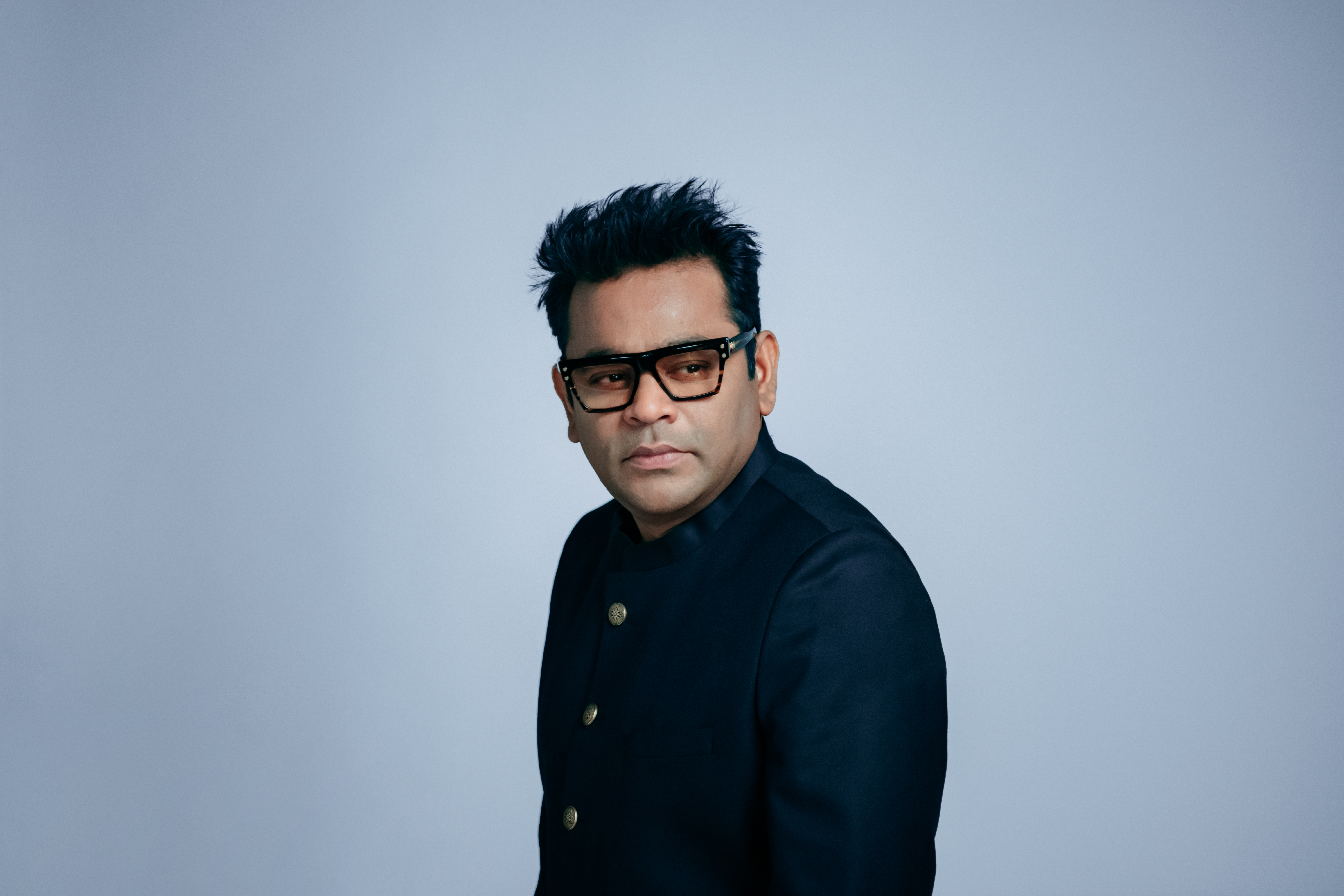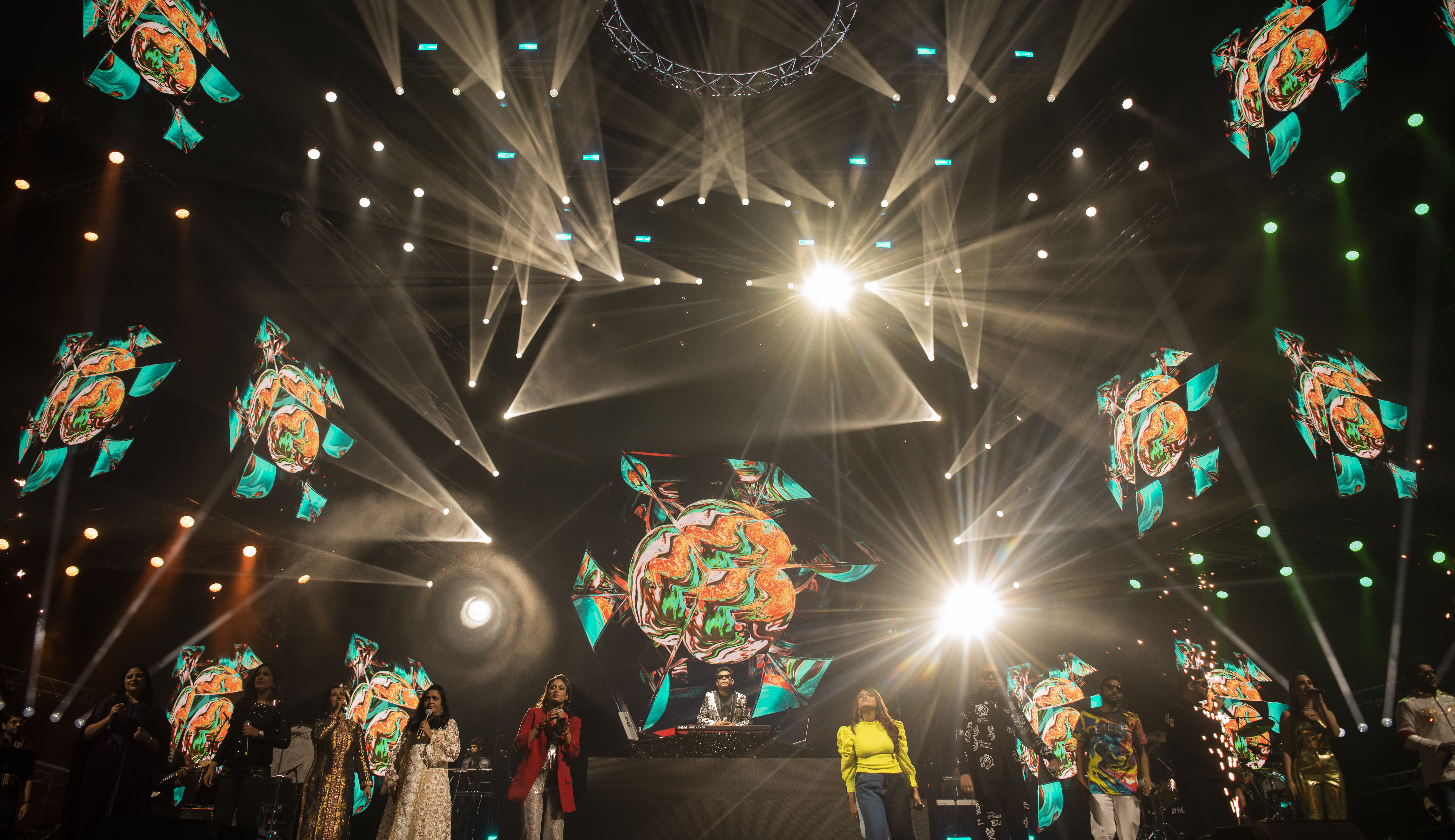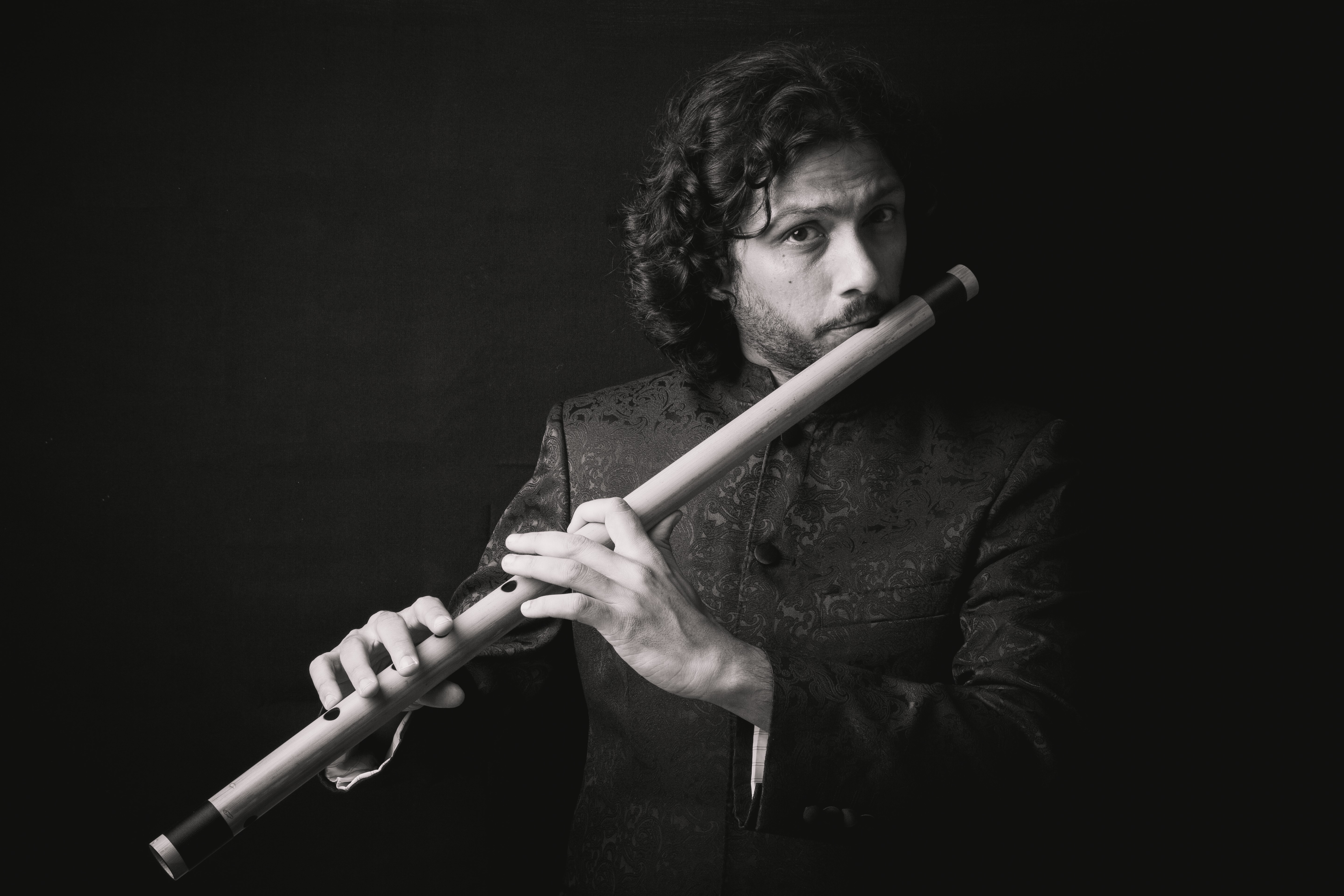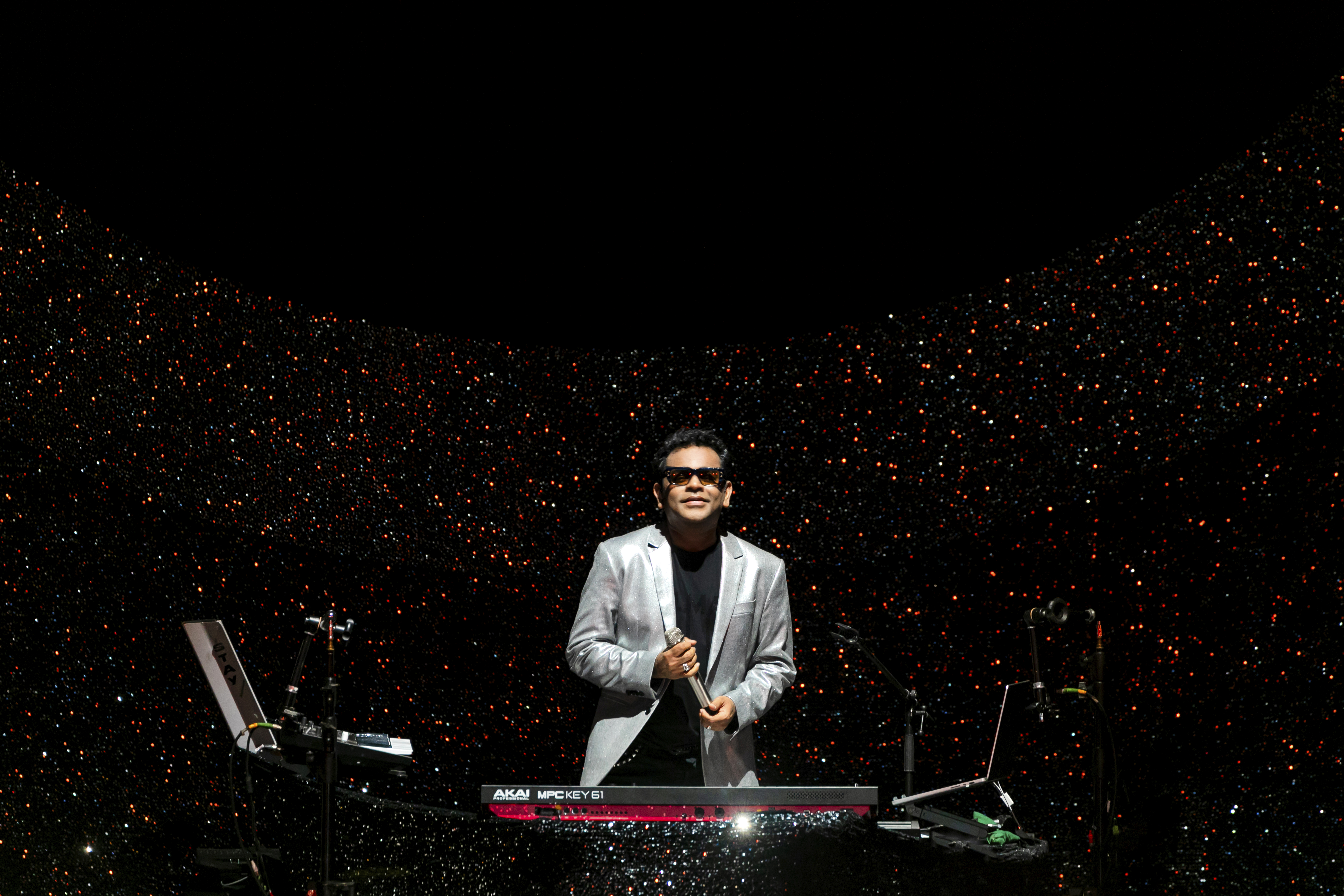
Note: The images included in this article are from previous performances.
“An Evening with A.R. Rahman: Stories and Music from his Career” was a marquee event at Vancouver International Film Festival (VIFF) in collaboration with Vancouver Symphony Orchestra (VSO). The concert was held on October 5th, 2024 at The Orpheum. It was a highly anticipated event, especially among the city’s South Asian immigrant and diaspora communities. The widely circulated promotions touted the event to share Rahman’s artistic journey through stories and songs.
A troupe of centerstage artists–Vocalist Mayssa Karaa, Flautist Ashwin Srinivasan, Pianist and Interviewer Kevin Doucette and the maestro himself–were complemented by the talented musicians of Vancouver Symphony Orchestra, conducted by Andrew Crust.

The evening began with the theme music of Bombay, played by Rahman on a continuum fingerboard. The audience was roused by the familiar rhythm, especially when the rendition transitioned to the patriotic nostalgia of Vande Mataram. The stage was then rearranged for a Q&A format–prompts and questions offered by Doucette for Rahman regarding the latter’s creative process for projects like 127 hours and Slumdog Millionaire. The musings gave way to live orchestral renditions of “The Canyon” and “Latika’s Theme”. It is surprising that these pieces were preferred over their better developed, more evocative counterparts like “Acid Darbari” and “Dreams on Fire”. The orchestra was overlapped by poorly mastered video segments playing on a big screen. The Grammy and Juno award winning Vancouver Symphony Orchestra was relegated to an underutilized rehearsal band.
The second half of the concert centered the interview format more than the anticipated music. Among the pieces that landed well was “Aadujeevitham: The Beloved Theme”, spotlighting Srinivasan’s prowess on the flute. Rahman went on to share his experiments with VR for a directorial venture, “Le Musk”, followed by a live demo of “Glisse La Vie”. The ongoing military occupation and human rights violations in Lebanon seemingly inspired a surprise addition–legendary Lebanese artist Fairuz’s song, “Li Beirut”, performed with searing emotions by Karaa, accompanied by Rahman on the continuum fingerboard. The last segment featured Rahman gushing about his latest project titled, “Secret Mountain.” Despite the interviewer’s repeated attempts, the tech hype did not elicit any excitement. The concert ended on a somber, almost dystopian note.

Much of the audience came in expecting Rahman to sing a song or two. The artist, popularly known as the “Mozart of Madras” instead delivered a spiel on seeking music within the metaverse. There was a huge gap between the expectations set by the event producers and what was delivered. The interviewer, at some point, admitted that the program had been altered considerably in the days leading up to the performance. It also appears that Rahman fell sick during his journey to Vancouver. These are justifiable, yet incomplete explanations for why the event was a massive let down for most attendees.
I believe the programming team missed the mark on catering to a majority desi audience. Doucette, as talented a musician as he is, was not the best fit to facilitate the talk. At the onset, the audience deserved an honest clarification that the concert would diverge from the initial agenda due to unforeseen limitations, instead they attempted to ride on Rahman’s larger than life stardom–a show of conceit that merits condemnation. It was plain agony to sit in a crowd of ardent fans feeling deflated for very obvious reasons. Rahman’s inventiveness might earn him accolades from techno optimists, but this event served as a cold reminder that artists need to retain touch with their creative roots and not turn into shills for soulless corporate endeavors.

A.R. Rahman is a household name in India. Back in the 90’s and 2000’s, he was a sought after music director for Tamil and Hindi cinema. Many albums from this era of his career satiated young India’s burgeoning appetite for inventive sounds and authentic cultural expressions. His music represented the soul of a secular culture that simultaneously embraced patriotism and globalism. Rahman’s songs and jingles meshed sophisticated digital mixing with folk instruments; combined classical influences from across the globe to create mesmerizing tunes. Rahman’s genius is attested by his vast repertoire spanning diverse genres–from spiritual to patriotic; from romantic melodies to rousing party tracks. Many of his albums such as “Dil Se”, “Lagaan”, “Roja” and “Ponniyin Selvan” lend themselves to a symphony orchestra. It is quite saddening that these tunes were not selected for VSO’s program.
– Annapoorna Shruthi
